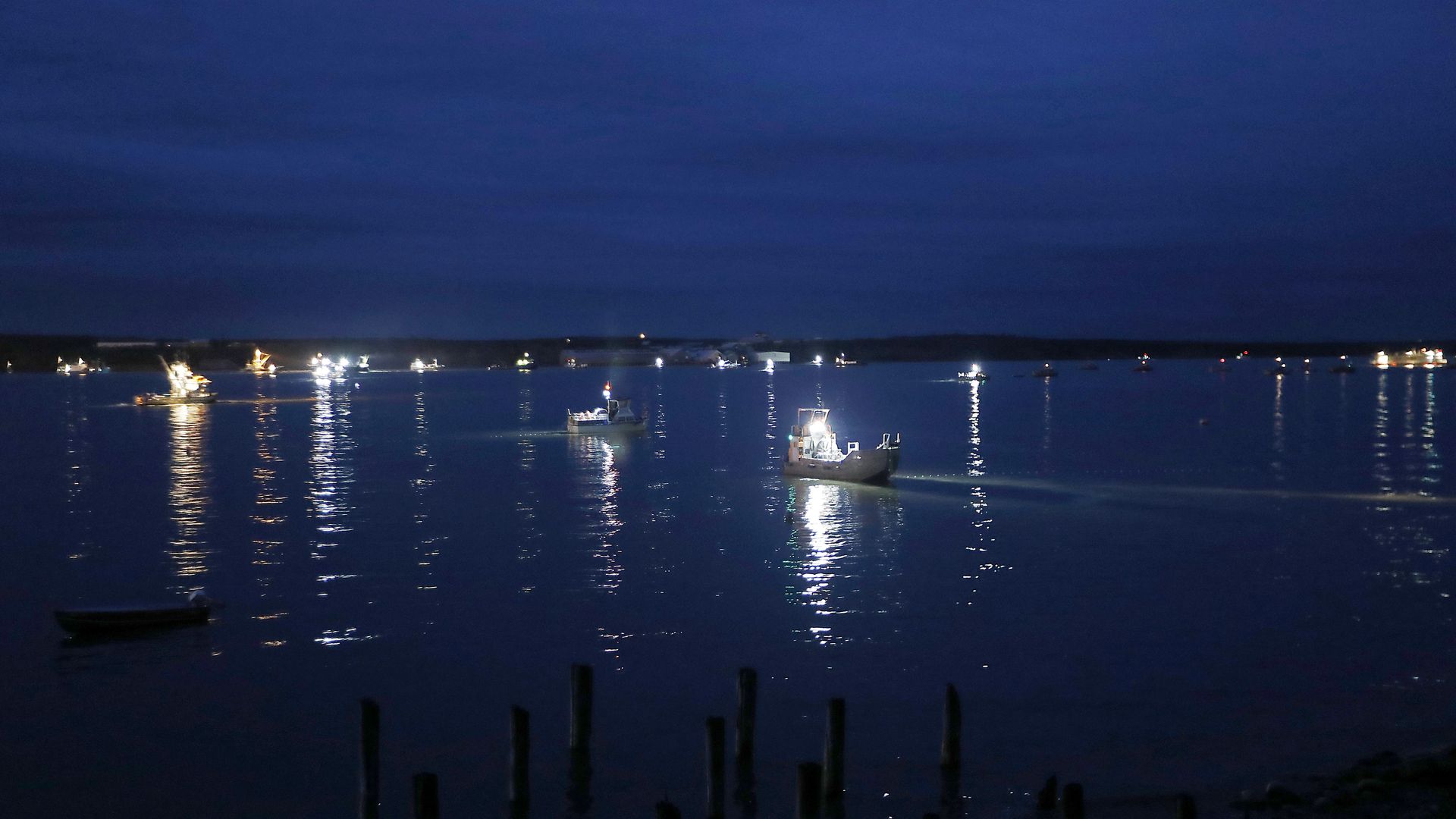May 25, 2022 - Politics & Policy
EPA proposes new restrictions to block controversial Alaska mine
Add Axios as your preferred source to
see more of our stories on Google.

Naknek River, which flows into Bristol Bay, Alaska, in the summer of 2019. Photo: Luis Sinco/Los Angeles Times via Getty Images
